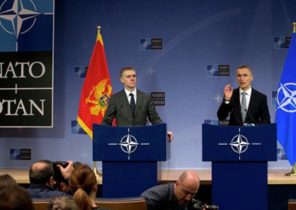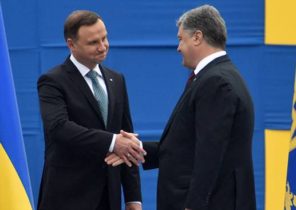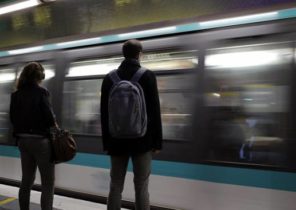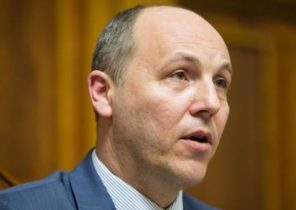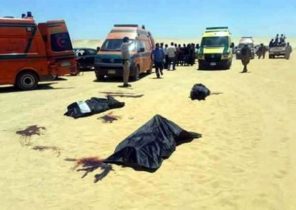
More money and better weapons for the security forces — that’s what the Libyan policy in the habit of looking to their Western supporters. Faiz Sarraj (Fayez Sarradsch), the head of the UN imposed a government of national unity, is no exception. My recent visit to Brussels ahead of a summit of EU heads of state in Malta he used in order to make it clear to the Europeans and NATO that they must take a more active part in the events in Libya, if you want to achieve peace in the country and curb the flow of refugees. What Sarraj will become the politician, under whose leadership will be closed borders Libya to gangs of smugglers, in the short term remains only at the level of desire, even if Western aid is more generous.
In Tripoli, joking: “He even the capital can not keep under control.” Residents reported clashes of rival militia groups. How is he going to cut off the point of crossing the border in the South or on the coast? “Like the wild West,” says living in the heart of Tripoli, a young man, talking on the phone. From the point of view of the security situation likely will get worse, not better. “In the morning you never know what will happen,” says one of the locals. They are all fighting against each other.
Factions are fighting for power in Libya
This is a difficult political combination “trench fighting” and crime, turned into murky dangerous waters. Political differences, in turn, for the last time soon escalated. The government of national unity led by Sarraj still has not achieved control over all ministries. Proclaimed the results of the recent election, the government in Eastern Libya does not recognize the office Caraga. Old, mainly Islamist opposition, the government has not yet fully released capital from their hands. Only in January the troops of these forces tried to take control of several government buildings, particularly the building of the Ministry of defence. There is even a danger of causing a civil war between East and West.
“It is possible that the magnitude of the force will grow,” suggests Mohamed Elarg (Mohamed Eljarh), employee of the scientific center of the Atlantic Council, living in the East of Libya. There, the influence of the military leader and commander of the so-called “national army” of the Caliph Haftarot (Chalifa Haftar). He intends to seize power over all of Libya. But in the West the Haftarot hate. Politicians and militias from the city of Misurata, the main centre of the source of power in the West, it acts like a red rag to a bull. There are moderate forces support the government of national unity for pragmatic reasons. But since then, as the “Islamic state” (LIH) (banned organization in Russia — approx. ed.) was defeated in Sirte, former stronghold of the uprising against the Gaddafi regime in the ranks of radical forces are increasingly thinking about how to go for confrontation with the Haftarot.
Putin supported the commander of the Haftarot
“The military Council of the city of split,” says Alar. But there are rebels who are trying to drag the city into a war against the Haftarot. In the East already hosts the team of jihadists led by people from Misrata and maintained by the city. When one high official misuratskih military Council paid a visit to these brigades, he was so seriously wounded in the attack air force Haftorah, he had to amputate it. Need at all costs to prevent such incidents, says Alar. He urges that bring parties to the conflict to the negotiating table.
The General Haftarot — a great negotiating position, because he got his supporters to influential policy: Russian President Vladimir Putin. In his view Libya symbolizes allegedly instigated by the West’s “color revolution”, and on the other hand, the weakness of his temporary replacement as President, Dmitry Medvedev, who cares about the fact that Russia has not vetoed a resolution authorizing military intervention of the UN Security Council in the war in Libya. The result of the overthrow of the Gaddafi regime in Moscow, must have lost their contracts for service, the provision of infrastructure and contracts in the energy sector, worth at least four billion dollars.
Haftar had studied in the Soviet Union
Over time, Libya has become a symbol of the failure of Western opponents and however became an excellent support for the expansion of the geopolitical influence of Russia. So, even though the Kremlin has officially supported the government of national unity Saraga, but misses no opportunity to point out the ineffectiveness of UN action to resolve the conflict in Libya, thereby increasingly raising the prestige of the Haftarot. The self-proclaimed field Marshal — old acquaintance, to conversation which does not need a translator: though the Haftarot in the 80s of the last century emigrated to USA and lived there until 2011, in the 70s he was trained in Soviet military institutions.
On Wednesday, news Agency Reuters reported that 70 wounded soldiers Haftorah arrived in Moscow for treatment, they were transferred from Benghazi to Egypt, and thence to Russia. This help, apparently, will continue to provide. By order of the Central Bank of Libya in the East, Russia has printed about four billion Libyan dinars (2.65 billion euros) to compensate for the cash shortage from which the country suffers.
The fight against terrorism on the Syrian model
In June, as well as at the end of last year, the General visited Moscow and, among other things, talked with foreign Minister Sergei Lavrov, defence Minister Sergei Shoigu, as well as with the authority Secretary of the national security Council Nikolai Patrushev. At the end of September Haftar sent to the Russian capital Trustee: Abdel Basset al-Badri (Badri Abdel Basset al), us Ambassador to Libya, Saudi Arabia, demanded, as was reported in close to the Kremlin, the newspaper “Izvestia”, unleashing a military operation against the Islamists on the Syrian model.
11 Jan Haftar personally went on Board the ship “Admiral Kuznetsov”, the only Russian aircraft carrier, staying in the Eastern Libyan city of Tobruk on the way back from Syria at the conclusion of the military operation there. The haftarot welcomed with military honors, and then, as reported in the Ministry of defense of Russia, on Board held a teleconference Libyan commander and Sergei Shoigu on combating terrorism, as well as the Haftarot could witness the skill of aerobatic Russian military pilots. NATO has criticized the visit, because the international community only recognizes the government of national unity in Tripoli, and “interaction with only one side and not bring any benefit”.
The supply of arms from Moscow?
During this interaction repeatedly reported on the requests for the supply of weapons, these reports Moscow officially commented, making emphasis on the fact that Russia is complying with the embargo on arms sales to Libya introduced by the UN in 2011. After the Haftarah visited the “Admiral Kuznetsov”, which supports his opponents, the Internet portal middleeasteye. net, citing an Algerian source said that Moscow intends to supply the Haftarot armored vehicles, ammunition and tracking devices — all under the mediation of Algeria to circumvent the arms embargo.
The state old ally Russia; the Algerian authorities do not just have made efforts in order to achieve balance and a political settlement of the Libyan conflict. Algeria is also accordingly influenced Egypt, supported the Haftarot and the last time samishisa with Russia.
The EU is worried about the mediation in Libya
Cooperation between Moscow and the Haftarot increasingly alarming and the European Union: Malta summit, EU diplomats expressed concern that Russia may nullify all efforts to establish mediation in Libya. The EU called on all parties to actively participate in the implementation of the agreement of the UN to resolve the conflict in the country, said one of the members of the Commission on Thursday, without mentioning Russia directly. As in the case of Syria, Europe, because of the large flow of migrants, came under pressure, and Moscow can use this fact as an additional potential for blackmail.
Mohamed Elarg currently believes that Putin probably (still) tries to prove himself as a mediator and center of political power than will support the Haftarah in its campaign to capture the entire territory of Libya. It is also indicative of the reports that Moscow and Cairo facilitated the meeting Saraga and the Haftarot. Recently Sarraj confirmed in an interview with the Italian newspaper Corriere Della Sera that soon he will meet with General Haftarot. The speaker of the Russian Ministry of foreign Affairs on Friday said that Caraga this month expected to visit in Moscow. The foreign Ministry spokesman stressed that the hype around the contacts with the General Haftarot in the foreign media “distorts an objective picture”. Russia works “with both centers of power in Libya.”
